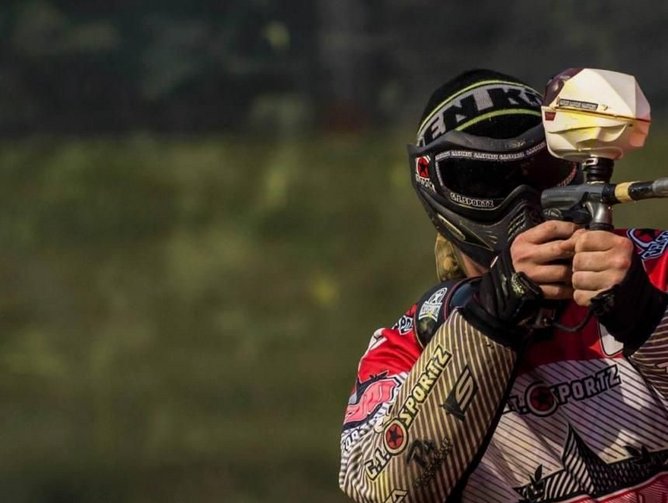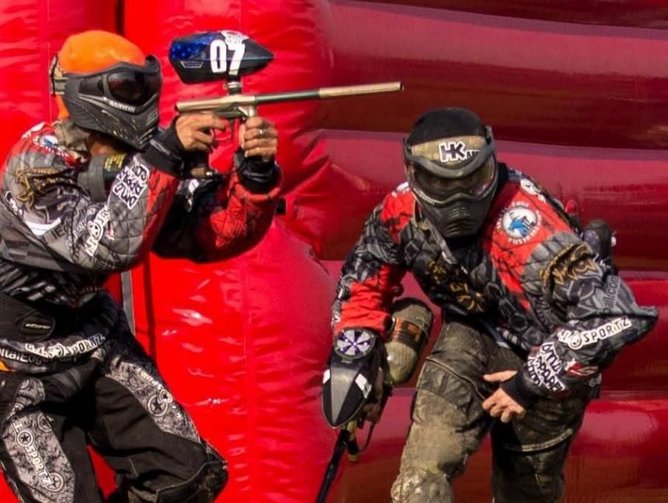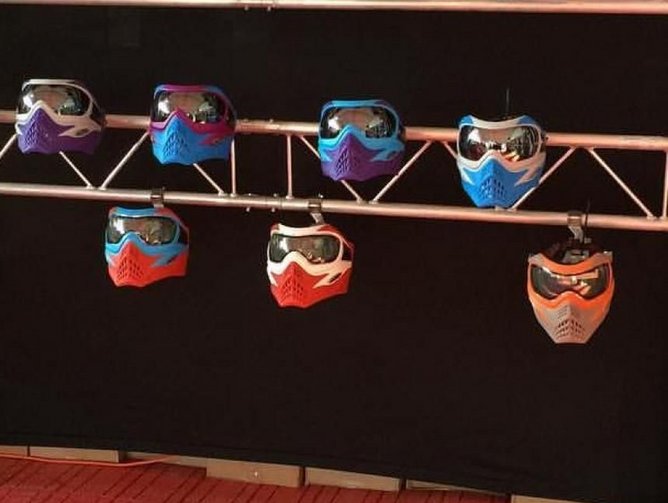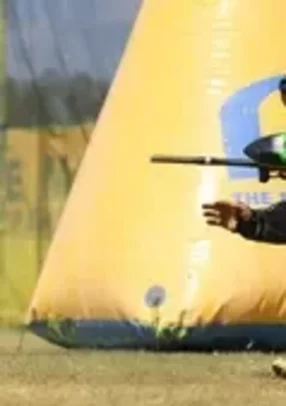When a group of partners decided to create a Canadian paintball manufacturing company, they showed up at the Paintball Sports Promotions (PSP) World Cup in an attempt to introduce their brand.
Then they were laughed at, even by the people they knew in the industry.
Years later, they’ve bought out all the naysayers and created a paintball manufacturing conglomerate called G.I. Sportz, Among the world’s leading manufacturers of the paintball industry, the company brings in about $140 million of sales annually.
From David to Goliath
Originally started in 2010 by a group of paintball enthusiasts led by current majority owner Richmond Italia, G.I. Sportz has since teamed up with a variety of paintball product distributors from across the globe, catapulting itself to the top of the industry.
After its first 18 months operating in a small location outside of Montreal, the group purchased one of Italia’s former businesses, Procaps. The Procaps plant was built in 1999 by Italia with the goal of manufacturing paintballs in the most efficient way possible.
The repurchasing of Procaps propelled G.I. Sportz into the global market, giving it the resources, machine capacity and formulation to take over even more market share. With the purchase, G.I. Sportz boost itself to second from the top as a global manufacturer and distributor of products within the paintball industry.
Soon after, G.I. Sportz identified a complimentary company that manufactured paintball markers, Tippmann Sports, as the next natural acquisition. Prior to this, G.I. Sportz and Procaps only manufactured paint balls and safety masks for the goggles.
G.I. Sportz finalized the purchase of Tippmann at the end of 2012, and the integration of the two companies boosted G.I. Sportz sales from $38 million to nearly $70 million by the end of 2013.
The tiny “David” company that got laughed at its brand launch has become a manufacturing “Goliath.” Even so, those at the top of the rising company won’t forget where it all began.
“We need to make sure that we don’t become too big in the way we treat our customers,” said Dave “Opie” Thomas, plant manager and director of U.S. operations at G.I. Sportz. “We’ve brought the player aspect, the business aspect and the niche business aspect back to the market.
“We took it out of the corporate hands who run everything by numbers and don’t really understand that the majority of our customers are very ‘mom-and-pop shop.’ The customers don’t always know how to market and or how to run their business properly. We have to help them do that. We basically become business partners with our customers and help them with whatever issue comes up.”
The golden goose
G.I. Sportz set itself up from a profitability and sales perspective to be a viable acquisition for a private equity firm. Earlier this year, a Toronto-based firm called Fulcrum Capital Partners purchased majority share of G.I. Sportz, which essentially eliminated several of its prior partners.
Around the same time, G.I. Sportz’s management team identified its largest competitor, KEE Action Sports, as the next acquisition target in an attempt to source paintballs instead of manufacturing them. With the financial support from Fulcrum, G.I. Sportz was able to make the purchase of KEE in July of this year.
Today, G.I. Sportz, as a paintball company with the three acquisitions and the subsequent growth, will end the calendar year with around $140 million of sales. Thomas gives a lot of the credit to Italia, who Thomas praised for his business acumen.
“Richmond Italia has been arguably the most successful entrepreneur in paintball,” said Thomas. “He started out as a paintball player, as well as a paintball field and store owner. Basically, the customers that we sell to today? He was one of them.”
According to Thomas, Italia’s sharp business acumen rubs off on G.I. Sportz’s suppliers as well
“We’re very good at treating our suppliers like partners,” said Thomas. “We pay our bills on time and we see a lot of these guys on a daily basis. We’re not a company that just buys from them and then are on cruise control. We’re always trying to grow and do more things.”
“Italia is like the golden goose. Anything he touches turns to gold. He definitely has the right timing with everything he does. I think a lot of our suppliers see that and want to be a part of that.”
Protecting its employees
In a constant effort to reduce costs and make a better product, G.I. Sportz has replaced a portion of its lower-paid packaging department workforce with an automated workforce. The employees that were once more susceptible to workman’s compensation injuries now have the strenuous portion of their jobs done by robots.
“These two robots have probably saved us $200,000 a year in labor cost, not to mention people who have hurt their backs from lifting cases of paint and workman’s compensation claims, as well as a better product for the customer,” said Thomas.
“They don’t take breaks. You don’t have to feed them. They just go.”
Although Thomas acknowledged the decision has a tremendous financial benefit for the G.I. Sportz, it doesn’t overshadow the importance of the company’s human employees.
The majority of employees at G.I. Sportz have been with the company for several years, and Thomas said protecting them from a health and safety aspect is among the company’s top priorities.
“We treat our people very well and the people are important to our business, especially on the skilled labor side,” said Thomas. “Adding robots was a no-brainer, not only because of the economic benefit, but really because of the reduction of work injuries.
Thomas pointed out that even with the best safety procedures, the manual labor aspect of the job took its toll on employees. “Our cases of paint weigh 15 pounds apiece and we’re stacking those six feet high,” he said. “Over time, you’re going to have a sore back. It’s really just identifying these types of processes and saying, ‘Hey, can we automate that?’”
Ahead of the game
G.I. Sportz is in the process of introducing new products to the shelves. Thomas said the company has 12 about major product launches planned for as early as October 2015 through the end of 2016.
Some of its new merchandise includes a new a goggles system with built-in communication, high-end markers, and ways to make paintballs at a reduced cost.
In addition, G.I. Sportz has created a smaller 50-caliber ball that is not only cheaper to make than the 68-caliber ball, but also hurts less when it strikes its human targets.
Though pricing of 68-caliber paintballs has gone down, the commodity-driven price of raw materials has gone up, resulting in a decrease of profit margin for traditional manufacturers—and a smaller budget for research and development. According to Thomas, G.I. Sportz has been able to reset pricing to a margin that makes sense to manufacturers, but still provides a price point to the field and dealer that is better than the current 68-caliber pricing.
“We provide a product that is easier to break — and by doing that, it hurts less to get shot,” he said. “The other thing it does is allow us to make a smaller marker, so we’ve increased our market opportunity by lowering our demographic to as low as 6-8 year old kids.”
Improving the industry
In the future, G.I. Sportz intends to consolidate to become more efficient, as well as execute new plans to help the company’s dealer base and customer base. In addition, the conglomerate G.I. Group’s Less than Lethal (or non-lethal) weapons platform has a high potential for growth in the company.
“We need to continue to develop products that customers will demand from our dealer base. We’ll continue to make paintball better from an entertainment perspective. Outside of cost reduction and launching new products, there’s not much more we can do other than just help the industry become stronger and healthier.
“I think we’re at the top of the totem pole on the paintball side,” said Thomas.





